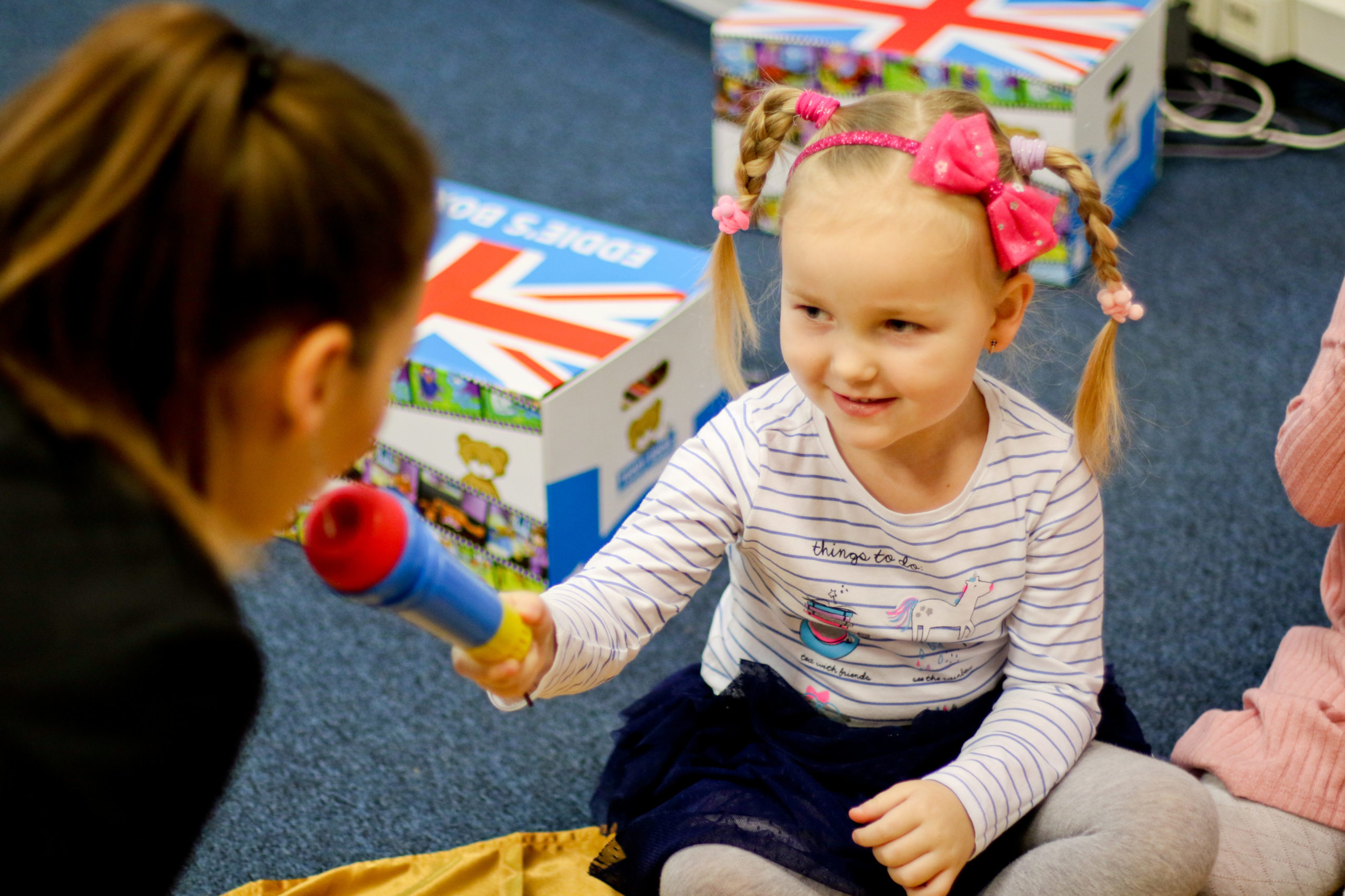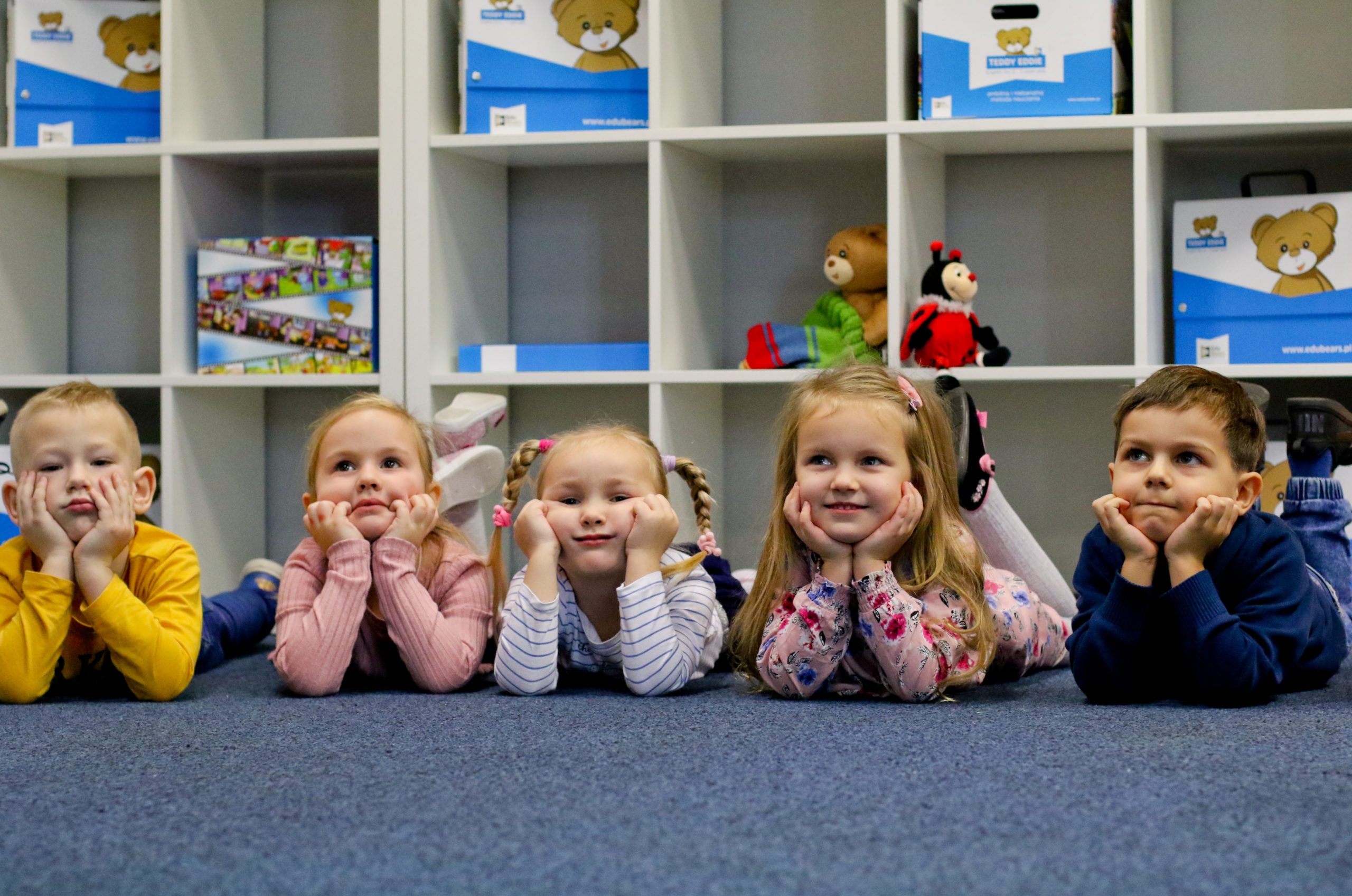Why learn English so early?


The influence on a child’s overall development
– learning a foreign language develops learning strategies and has a positive influence on children’s cognitive development
– it also broadens children’s horizons and shapes their social and cultural awareness
– it improves their memory
– language teaching to preschool-aged children takes place in a playful way, which is a pleasant experience for them and enables them learn effortlessly (something which is often difficult to achieve later on)
– it also broadens children’s horizons and shapes their social and cultural awareness
– it improves their memory
– language teaching to preschool-aged children takes place in a playful way, which is a pleasant experience for them and enables them learn effortlessly (something which is often difficult to achieve later on)
Communicative benefits
– children quickly accept the fact that English is a tool of communication
– the natural need to communicate encourages children to try to express themselves in a foreign language
– younger children are less inhibited than older students so they don’t feel self-conscious when they make mistakes while attempting to communicate
– children don’t get discouraged when they encounter unfamiliar words or phrases. They are quite accustomed to this situation, because they are still learning their mother tongue.
– the natural need to communicate encourages children to try to express themselves in a foreign language
– younger children are less inhibited than older students so they don’t feel self-conscious when they make mistakes while attempting to communicate
– children don’t get discouraged when they encounter unfamiliar words or phrases. They are quite accustomed to this situation, because they are still learning their mother tongue.
Language development
– younger children cope much better with mastering the phonological system of a new language. Since their speech apparatus is still flexible, it is more likely that they will acquire natural English pronunciation and intonation, which will in turn have a positive influence on their listening comprehension skills
– preschool-aged children are still in the process of learning their native language, and learning two languages simultaneously (a mother tongue and a foreign language) is beneficial as it increases their language awareness and has a positive impact on the development of both brain hemispheres
– the older a student is, the more difficult it is for him or her to acquire listening comprehension skills. In contrast, preschool-aged children get used to the sounds of a foreign language relatively quickly, and learn to understand spoken language effortlessly
– the natural developmental plasticity of children’s brains makes language acquisition more similar to learning their mother tongue
– preschool-aged children are still in the process of learning their native language, and learning two languages simultaneously (a mother tongue and a foreign language) is beneficial as it increases their language awareness and has a positive impact on the development of both brain hemispheres
– the older a student is, the more difficult it is for him or her to acquire listening comprehension skills. In contrast, preschool-aged children get used to the sounds of a foreign language relatively quickly, and learn to understand spoken language effortlessly
– the natural developmental plasticity of children’s brains makes language acquisition more similar to learning their mother tongue
The reality of foreign language teaching
– considering the limited time we can devote to learning a foreign language (usually no more than two short sessions a week), the sooner children start, the more time they spend on mastering the language, which leads to a higher level of achievement
– thanks to the playful style of activities, children develop a very positive attitude to English, which often becomes their favourite subject. This strengthens their internal motivation and ensures better results in their further language education.
– preschool-aged children do not treat a foreign language as a school subject, and so it is possible to set children purely communicative goals and allow them to learn in a more spontaneous and natural way.
– thanks to the playful style of activities, children develop a very positive attitude to English, which often becomes their favourite subject. This strengthens their internal motivation and ensures better results in their further language education.
– preschool-aged children do not treat a foreign language as a school subject, and so it is possible to set children purely communicative goals and allow them to learn in a more spontaneous and natural way.
j

j

